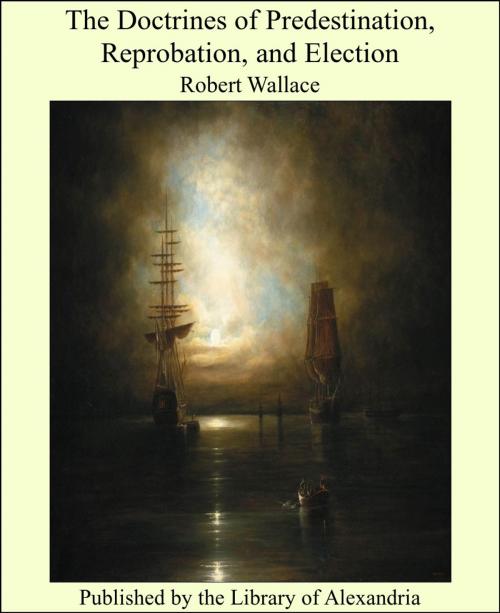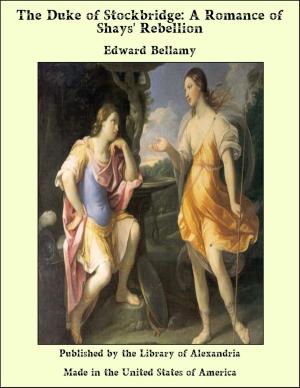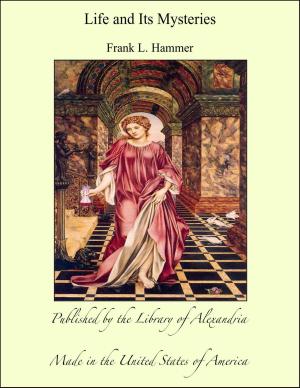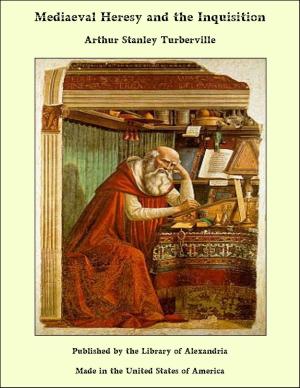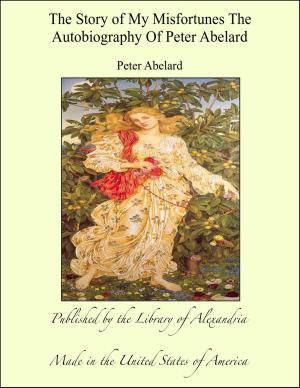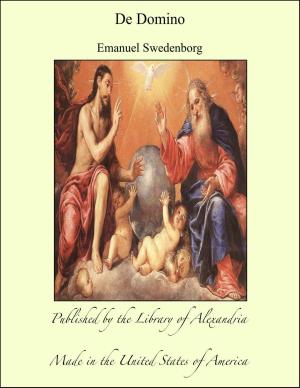The Doctrines of Predestination, Reprobation, and Election
Nonfiction, Religion & Spirituality, New Age, History, Fiction & Literature| Author: | Robert Wallace | ISBN: | 9781465502858 |
| Publisher: | Library of Alexandria | Publication: | March 8, 2015 |
| Imprint: | Language: | English |
| Author: | Robert Wallace |
| ISBN: | 9781465502858 |
| Publisher: | Library of Alexandria |
| Publication: | March 8, 2015 |
| Imprint: | |
| Language: | English |
WERE a number of shipwrecked mariners cast upon an island, one of their first inquiries would be, Is it inhabited? Having observed footmarks upon the sand, and Other tokens of man’s presence, another question would be, What is the character of the people? Are they anthropophagi, or are they of a friendly disposition? The importance of such questions would be realised by all. Their lives might depend upon the answer to the latter. We look around upon the universe, and everywhere observe marks of design, or the adapation of means to ends. The conviction gathers upon us with deepening power, that there must have been a supreme intelligence arranging the forces of nature. If I throw the dice box twenty times, and the same numbers always turn up, I cannot resist the conclusion that the dice must have been loaded. The application is simple. But, as in the case of the mariners, a second question arises, viz.:—What is the character of the Being revealed in nature? Is He beneficent, or like the fabled Chronus, who devoured his children? It is substantially with this second question that the following work has to do. It is a treatise concerning the character of God. The subjects discussed have been for many years the occasion of much controversy and difficulty. Whilst to certain minds it were more agreeable to read exposition of Christian truth, yet the followers of Christ may often have to contend for the faith once delivered to the saints. Our Lord’s public ministry showed how earnestly He contended for the truth. At every corner He was met by the men of “light and leading” amongst the Jews, and who did their best to oppose Him. Paul, too, when he lived at Ephesus, disputed “daily in the school of one Tyrannus, and this continued by the space of two years.” The period of the Reformation was also one of earnest discussion between the adherents of the old faith and the followers of Luther. The questions discussed in those days, both in apostolic and post-apostolic times, were eminently practical; but they were not a whit more so than the questions of Predestination, Reprobation, and Election. These touch every man to the very centre of his being when he awakes from the sleep of indifference, and wishes to know the truth about the salvation of his soul. It has been our object, in the present volume, to dispel the darkness which has been thrown around those subjects, and to let every man see that the way back to the bosom of the heavenly Father is as free to him as the light of heaven. The following treatise consists of an Introduction bearing on the history of the questions discussed; Part I. treats of Predestination; Part II. is on Reprobation, and Part III. on Election
WERE a number of shipwrecked mariners cast upon an island, one of their first inquiries would be, Is it inhabited? Having observed footmarks upon the sand, and Other tokens of man’s presence, another question would be, What is the character of the people? Are they anthropophagi, or are they of a friendly disposition? The importance of such questions would be realised by all. Their lives might depend upon the answer to the latter. We look around upon the universe, and everywhere observe marks of design, or the adapation of means to ends. The conviction gathers upon us with deepening power, that there must have been a supreme intelligence arranging the forces of nature. If I throw the dice box twenty times, and the same numbers always turn up, I cannot resist the conclusion that the dice must have been loaded. The application is simple. But, as in the case of the mariners, a second question arises, viz.:—What is the character of the Being revealed in nature? Is He beneficent, or like the fabled Chronus, who devoured his children? It is substantially with this second question that the following work has to do. It is a treatise concerning the character of God. The subjects discussed have been for many years the occasion of much controversy and difficulty. Whilst to certain minds it were more agreeable to read exposition of Christian truth, yet the followers of Christ may often have to contend for the faith once delivered to the saints. Our Lord’s public ministry showed how earnestly He contended for the truth. At every corner He was met by the men of “light and leading” amongst the Jews, and who did their best to oppose Him. Paul, too, when he lived at Ephesus, disputed “daily in the school of one Tyrannus, and this continued by the space of two years.” The period of the Reformation was also one of earnest discussion between the adherents of the old faith and the followers of Luther. The questions discussed in those days, both in apostolic and post-apostolic times, were eminently practical; but they were not a whit more so than the questions of Predestination, Reprobation, and Election. These touch every man to the very centre of his being when he awakes from the sleep of indifference, and wishes to know the truth about the salvation of his soul. It has been our object, in the present volume, to dispel the darkness which has been thrown around those subjects, and to let every man see that the way back to the bosom of the heavenly Father is as free to him as the light of heaven. The following treatise consists of an Introduction bearing on the history of the questions discussed; Part I. treats of Predestination; Part II. is on Reprobation, and Part III. on Election
